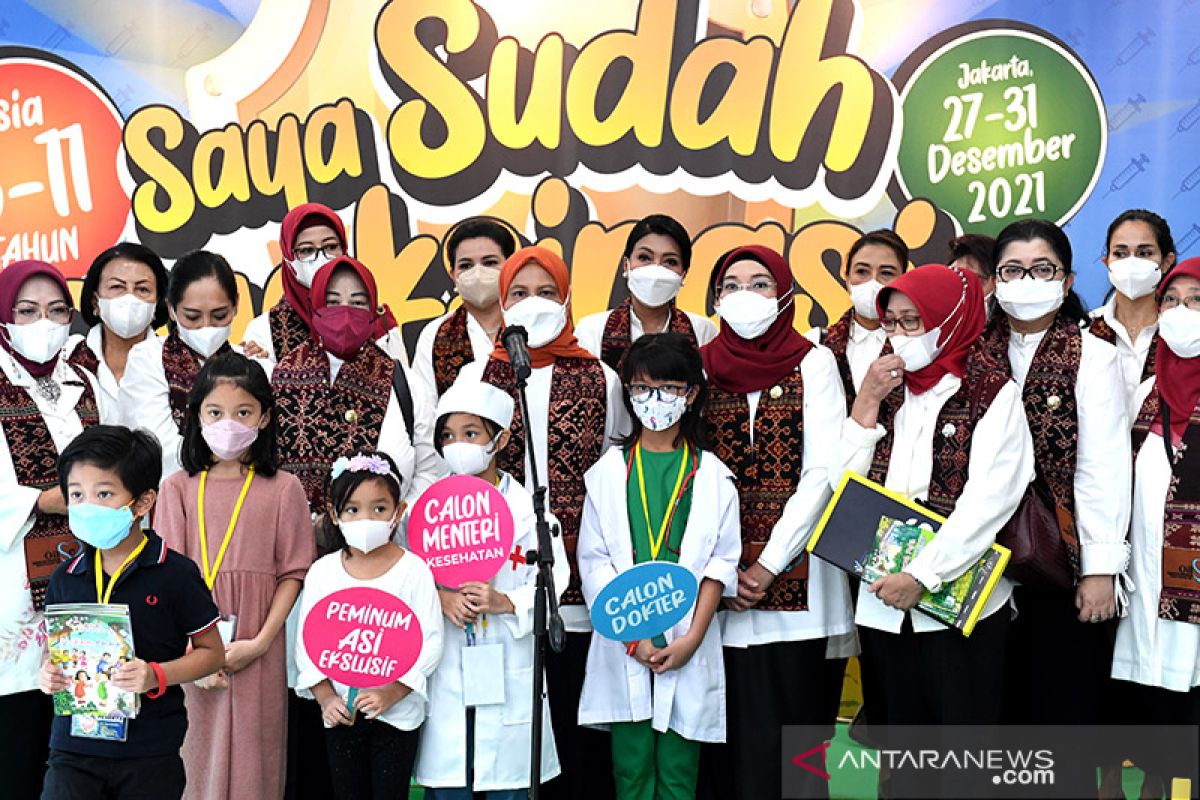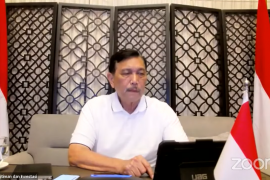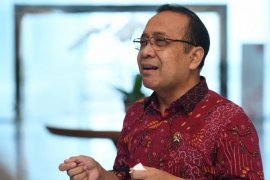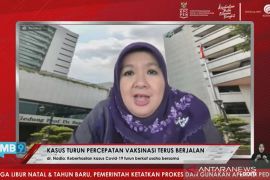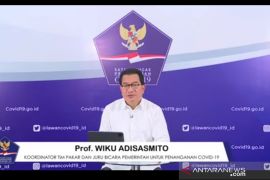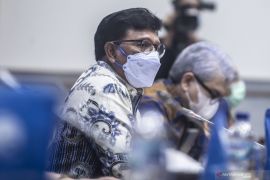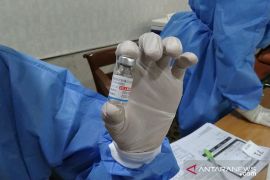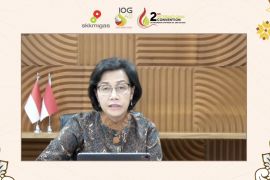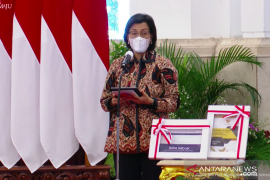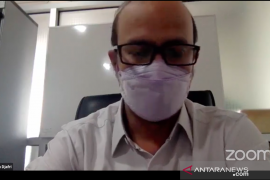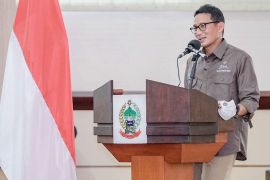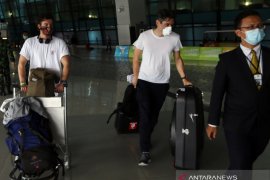Optimizing the vaccination campaign has become increasingly urgent, as the nation has reported a nearly fivefold increase in the number of COVID-19 cases in the past three weeks, according to the COVID-19 Handling Task Force.
The number of COVID-19 cases had increased, from 1,123 to 5,454 in the past three weeks, spokesperson for the COVID-19 Handling Task Force, Wiku Adisasmito, stated on January 20, 2022.
The number of active COVID-19 cases this week reached 8,605, an increase of three thousand as compared to the previous week when the number of cases totalled 5,494. The spread of COVID-19 in Indonesia is mostly due to local transmission.
The first case of COVID-19 was confirmed in Indonesia in March 2020. As of January 20, 2022, at least 4,277,644 people had tested positive for COVID-19 in the country, while 4,121,117 people had recovered, and 144,199 people had succumbed to the virus.
Related news: Jokowi asks people to stay calm after first Omicron case detected
The Health Ministry detected the first Omicron case in Indonesia on December 15, 2021. As of January 20, 2022, the ministry has recorded as many as 882 Omicron cases in the country.
Based on data from the COVID-19 Task Force, as of January 20, a total of 179,153,744 Indonesians had received the first dose of the COVID-19 vaccine and 122,378,266 people had received the second dose.
Overall, the government is targeting to fully vaccinate 208,265,720 Indonesians out of the nation’s population of over 273 million.
In addition, 1,328,659, or 90.46 percent of the health workers have been administered the booster vaccine.
The Indonesian government, on January 12, 2022, rolled out booster vaccinations for the public, in general, who have completed six months since having received the second COVID-19 dose.
Booster vaccinations, which are free and not mandatory, aim to offer additional protection to individuals amid the emergence of the Omicron strain.
Related news: Taking COVID-19 booster shots not mandatory: Health Ministry
The National Agency of Drug and Food Control (BPOM) has issued emergency-use authorization (EUA) for five COVID-19 vaccines for use as booster shots.
The five vaccines are Sinovac’s CoronaVac, reproduced by state-run vaccine manufacturer PT Bio Farma, Pfizer, AstraZeneca, Moderna, and Zifivax.
Meanwhile, President Joko Widodo (Jokowi) has urged residents to get their COVID-19 booster vaccine to increase the body's immunity against the disease when the efficacy of the first two vaccine doses starts to decline.
"During the pandemic, vaccination is also important. Those who are yet to be vaccinated, go get your vaccine; while those who have received their first vaccine dose, get your second dose; and those who have completed the two doses, promptly get your booster dose," Jokowi emphasized.
Indonesia is currently experiencing a surge in the number of COVID-19 cases due to the newly emerging Omicron variant, he added.
He reminded Indonesians to remain vigilant yet to not overreact to the current situation. The president pointed out that some medical researches, including a WHO report about the virus variant, revealed that the Omicron variant's transmission rate is higher than that of other virus strains.
Related news: Booster shots needed to tackle Omicron spread: academic
Four strategies against Omicron
To handle and prevent the spread of the Omicron variant of COVID-19, the Indonesian government is applying four strategies: stringent health protocols (washing hands, wearing masks, and social distancing), surveillance (testing, tracing, and self-isolating), vaccination, and treatment.
Moreover, the government has tightened quarantine for international travelers since 98 percent of the Omicron cases in Indonesia have been imported, according to Communication and Informatics Minister Johnny G. Plate .
Hence, quarantine centers are being readied in Jakarta, Surabaya, Batam, and Entikong in addition to increasing the number of PCR test kits to identify Omicron cases.
"The test kits are being distributed to all main entry points across the country in order to identify Omicron cases faster, he remarked.
The government has also raised the number of genome sequencing kits to accelerate and expand testing networks outside Java.
It is also accelerating and expanding national vaccination campaigns targeting people, who run a high risk of being exposed to COVID-19, he affirmed.
Health facilities and hospitals, including beds, medicines, and oxygen, have been readied as a precautionary measure against a case spike, he stated.
Related news: Indonesia increases quarantine centers for international travelers
In the meantime, spokesperson for COVID-19 handling Reisa Broto remarked that the government had guaranteed the availability of COVID-19 antiviral drugs in the country as a precautionary measure against the next wave of COVID-19 cases.
"These efforts include preparing new antiviral drugs, such as Molnupiravir and Paxlovid, wherein the Ministry of Health had secured 400 thousand Molnupiravir tablets readied by PT Amarox," she stated.
Asmoro is optimistic that all requirements for drugs would be met through domestic production in April or May 2022.
"This progress is a source of encouragement for us all to continue to surmount this pandemic," she stated.
Health Minister Budi Gunadi Sadikin has also confirmed the government’s readiness to deal with omicron by saying that production of the S-Gene Target Failure, or PCR test, for virus detection in four to six hours, as an early indication of the Omicron variant, would be completed by January-end of 2022.
"Now that we have prepared it, the production is expected to be completed by the end of this month, and later on, we will distribute it," the minister remarked.
Related news: COVID-19 rapid antigen test reinstated for Java-Bali air travel
Sadikin noted that the SGTF tool is a solution to detect the Omicron variant in Indonesia following the use of genome sequencing tools that were relatively expensive and took longer periods of time to produce results, ranging from six to seven days.
"Genome sequencing is only available in 12 laboratories and one test for one reagent costs Rp5 million to Rp6 million," he remarked.
The minister explained that it took a long period of time to produce genome sequencing results, as Indonesia had only 12 specialized genome sequencing laboratories, with 15 units of test kits.
On the other hand, the PCR test kits cost around Rp300 thousand each, with the number of examination laboratories reaching 1,100 in Indonesia.
“Now, the question is do we want to use genome sequencing? Actually, it is not necessarily needed, (from an) epidemiology (point of view),” he affirmed.
The minister highlighted the need for the genome sequencing method to determine the pattern of the variant's transmission and adopt early prevention measures.
Sadikin remarked that the COVID-19 detection method, using both antigen and PCR tests, is still effective.
The Health Ministry has urged the people to maintain discipline in implementing health protocols and to limit their mobility including to not travel overseas if not necessary, amid the threat of Omicron in particular.
Related news: Epidemiologist urges government to intensify whole genome sequencing
Editor: Suharto
Copyright © ANTARA 2022
